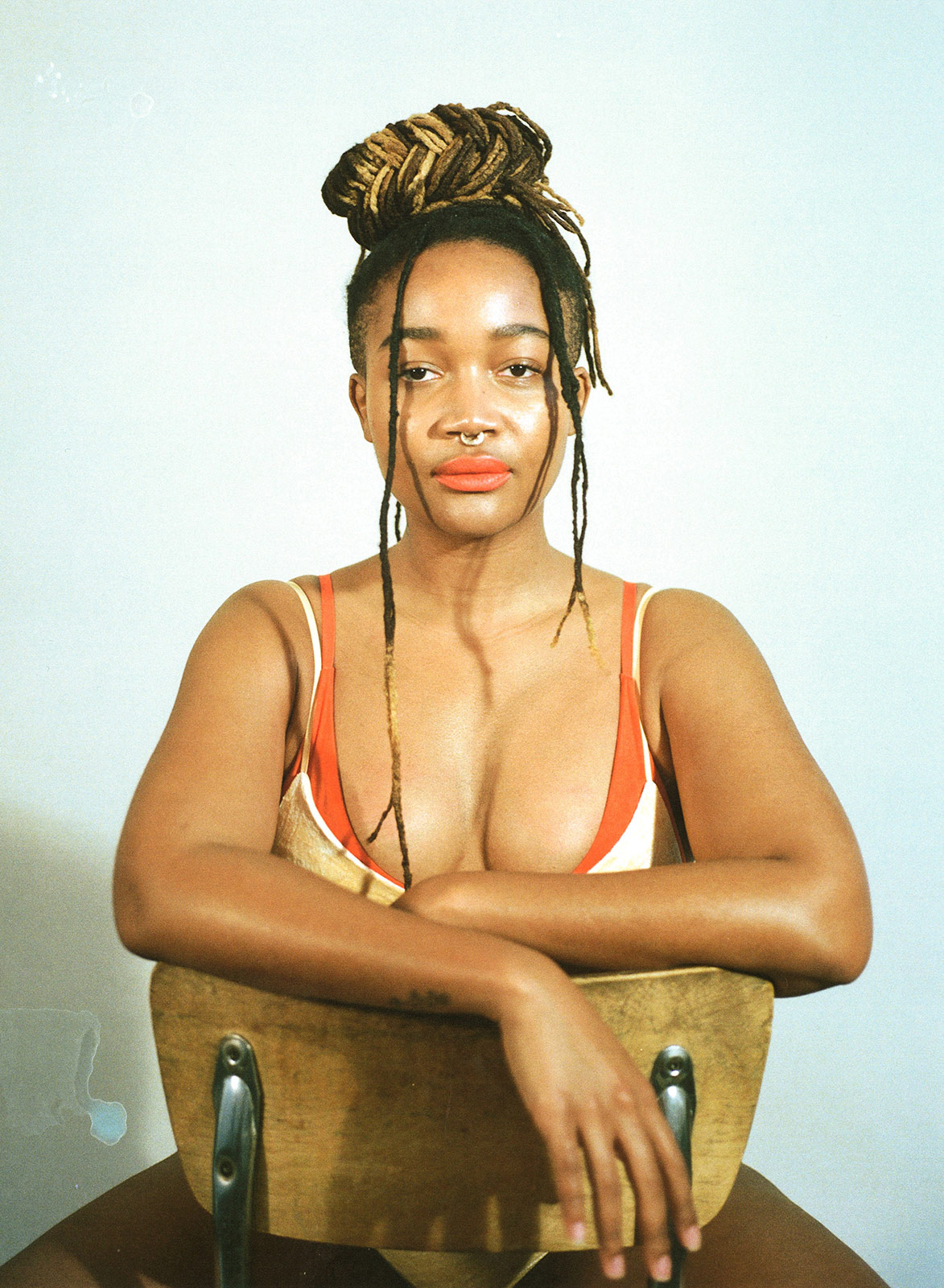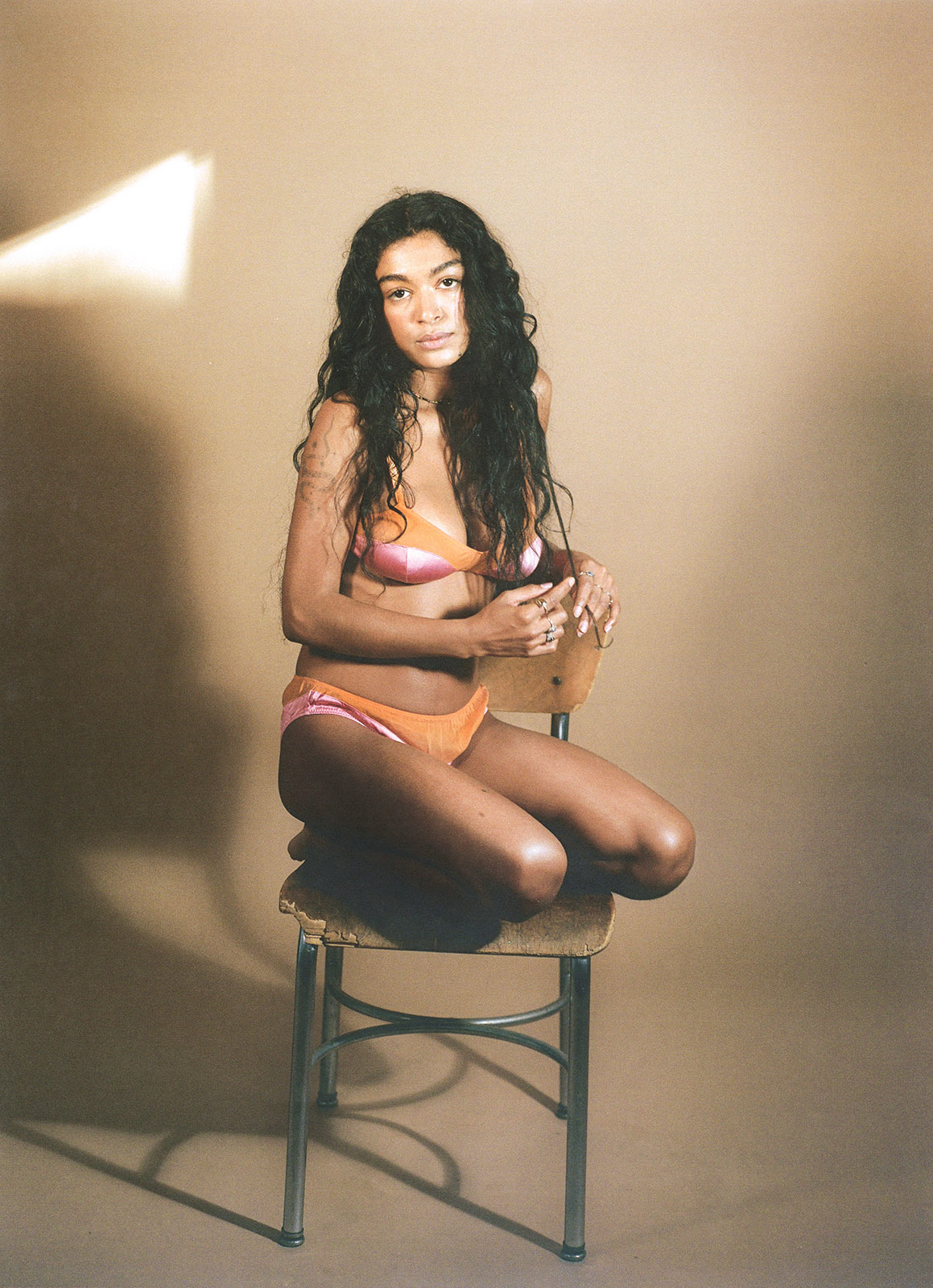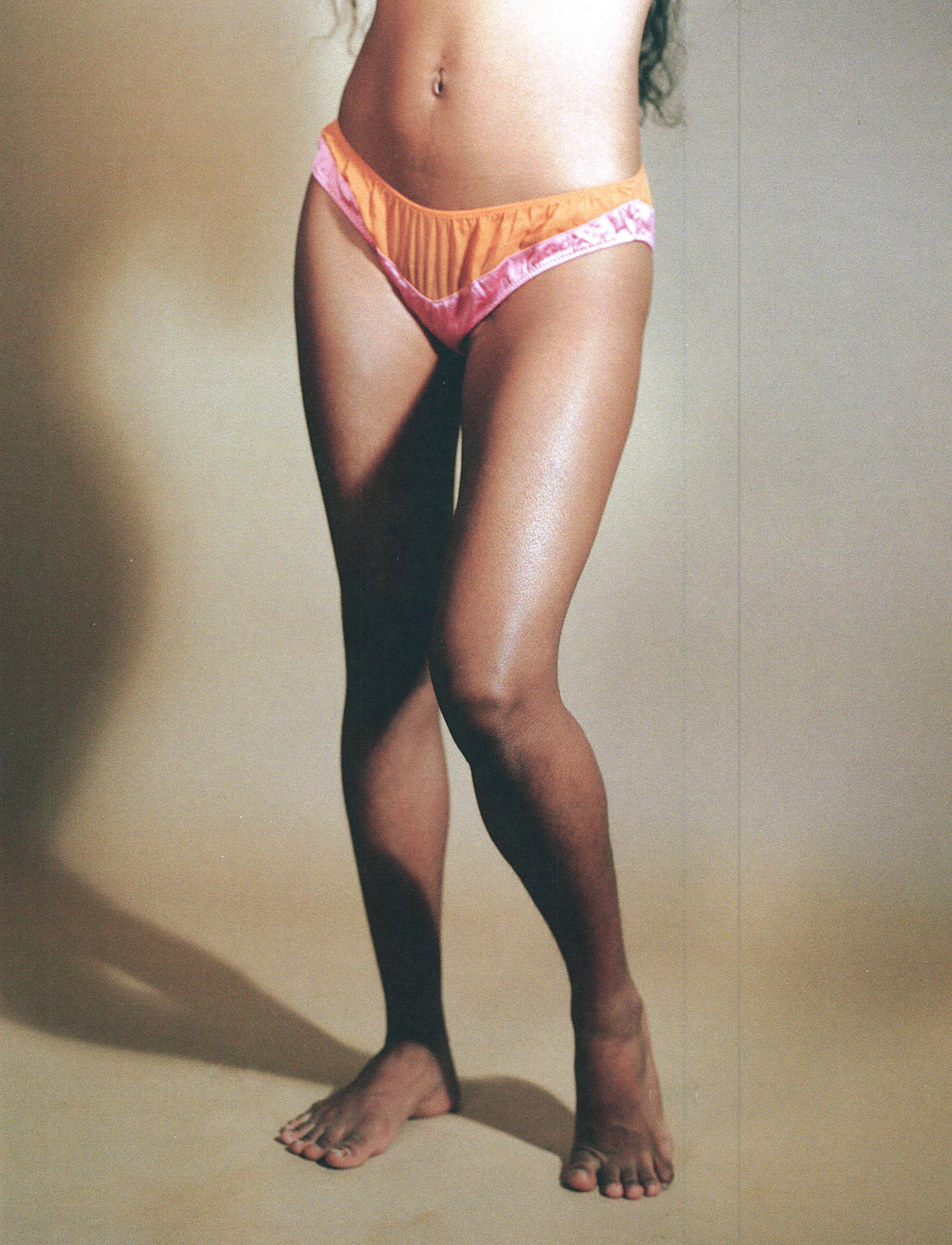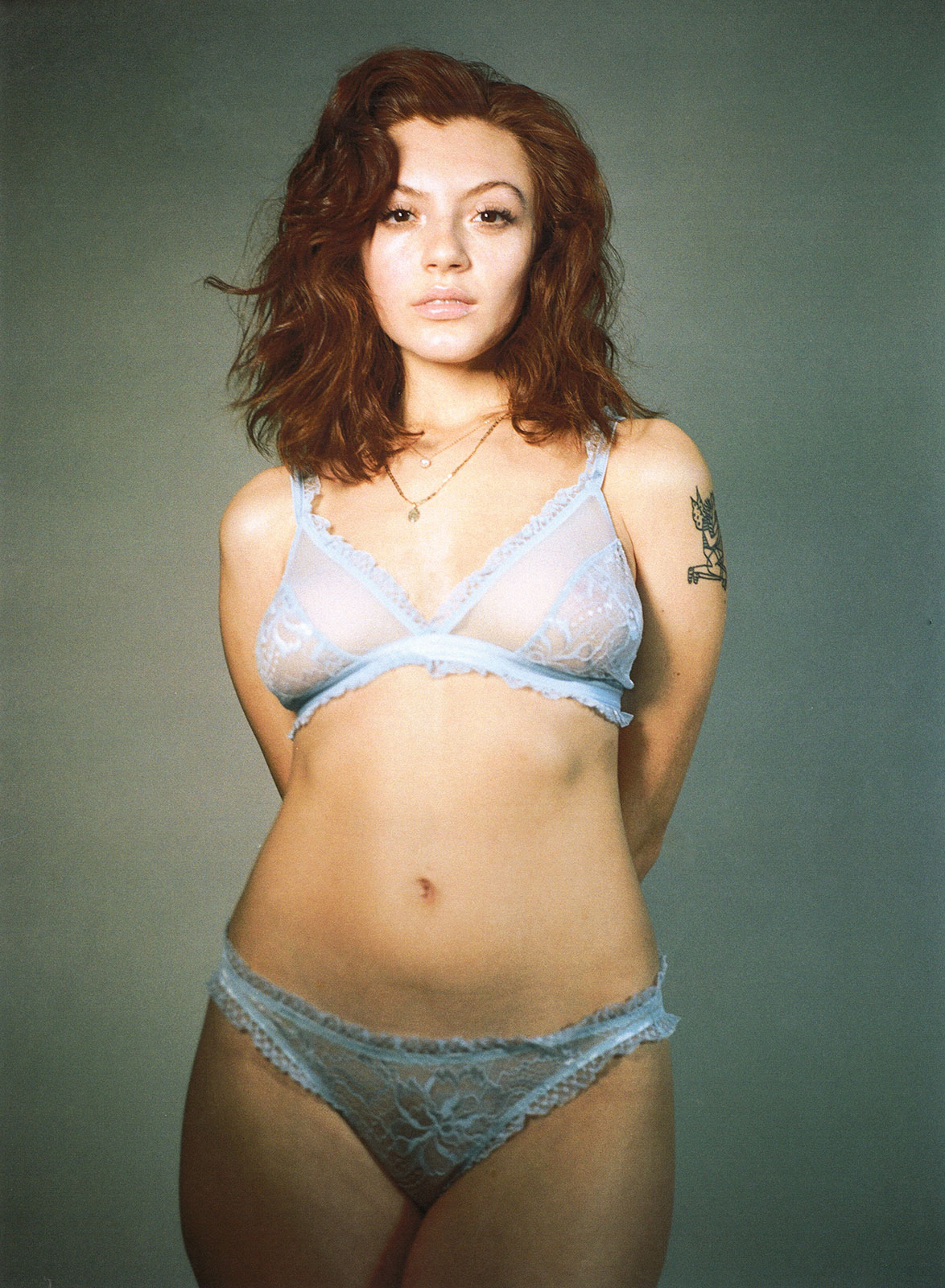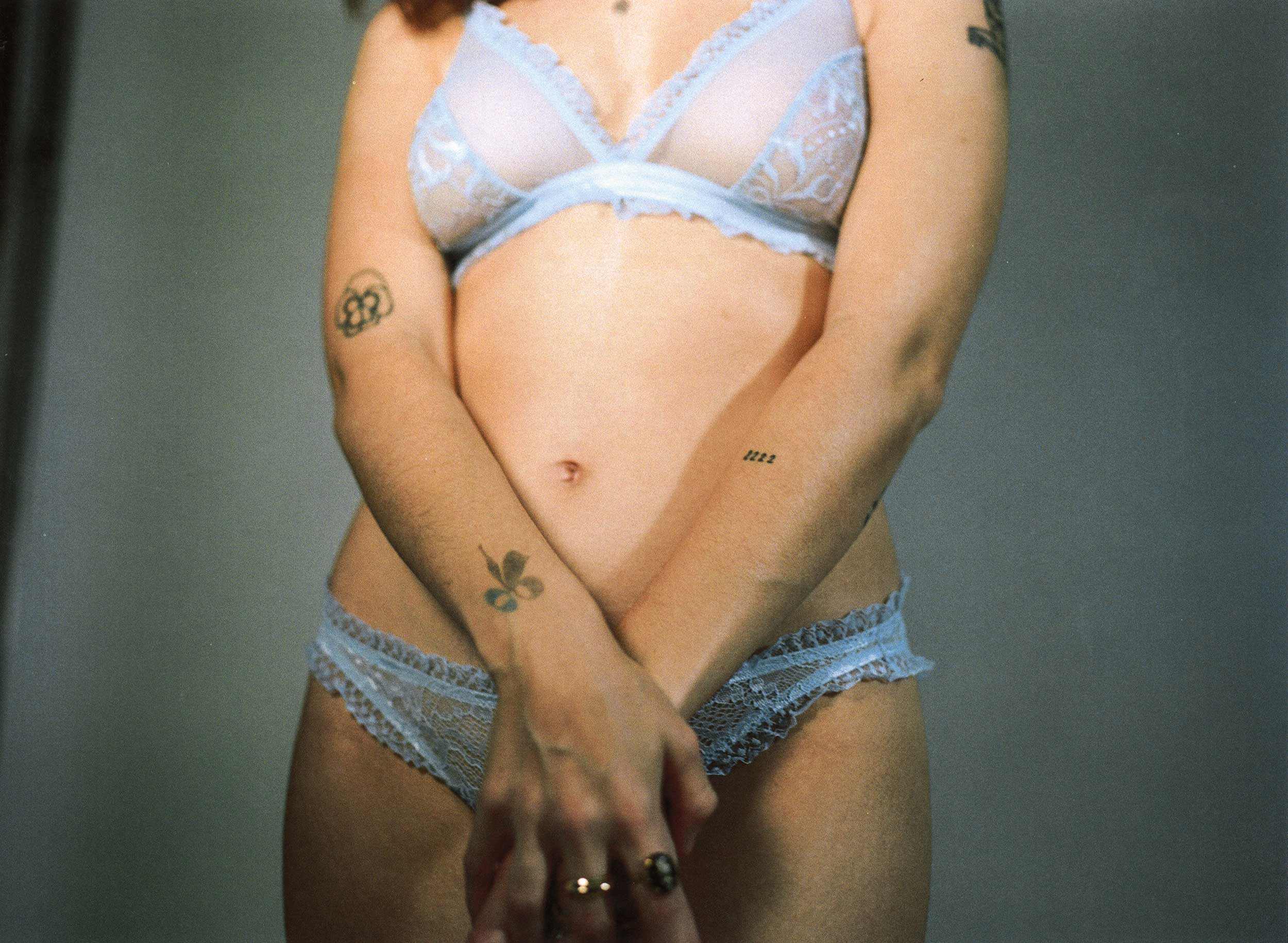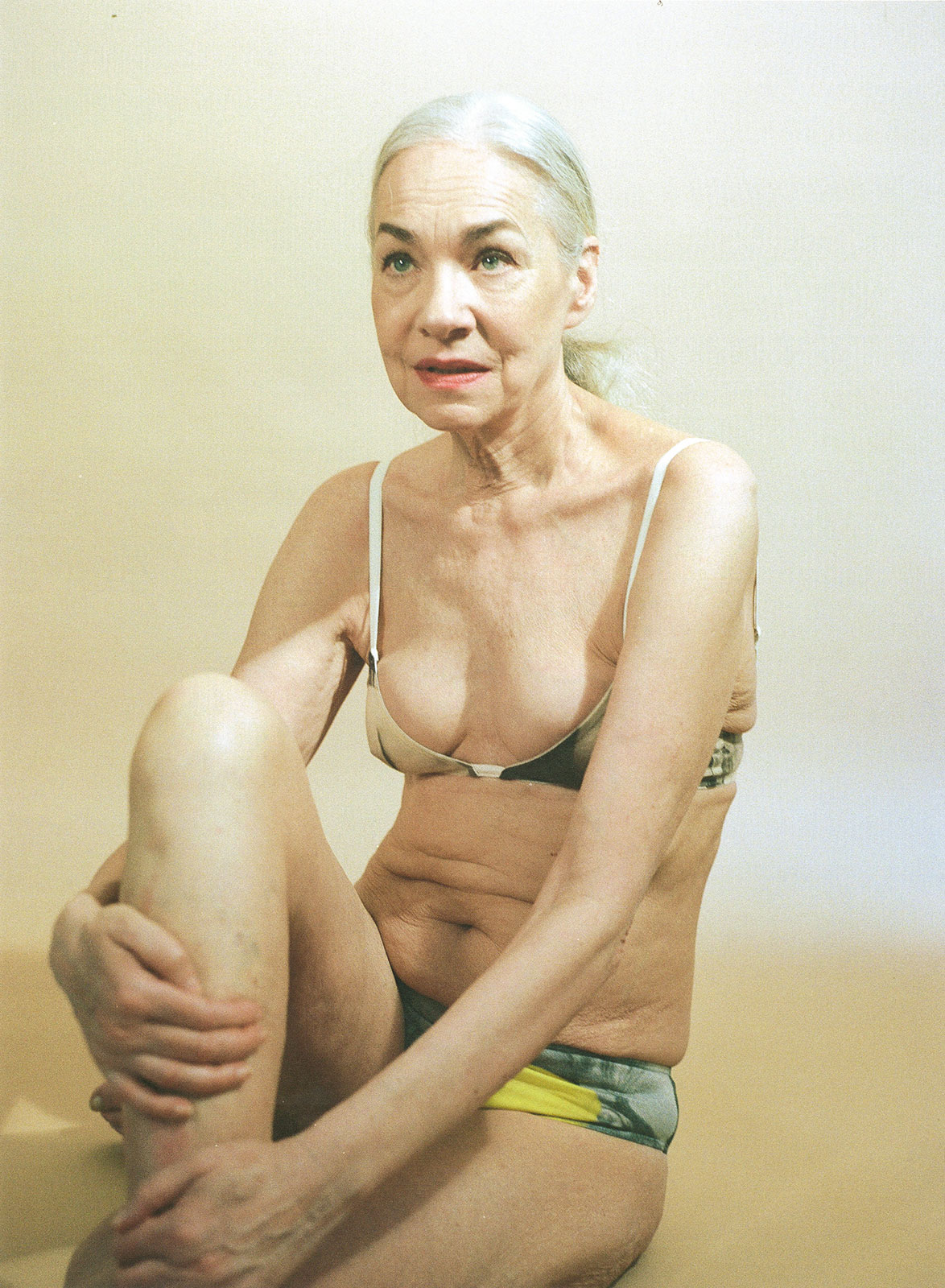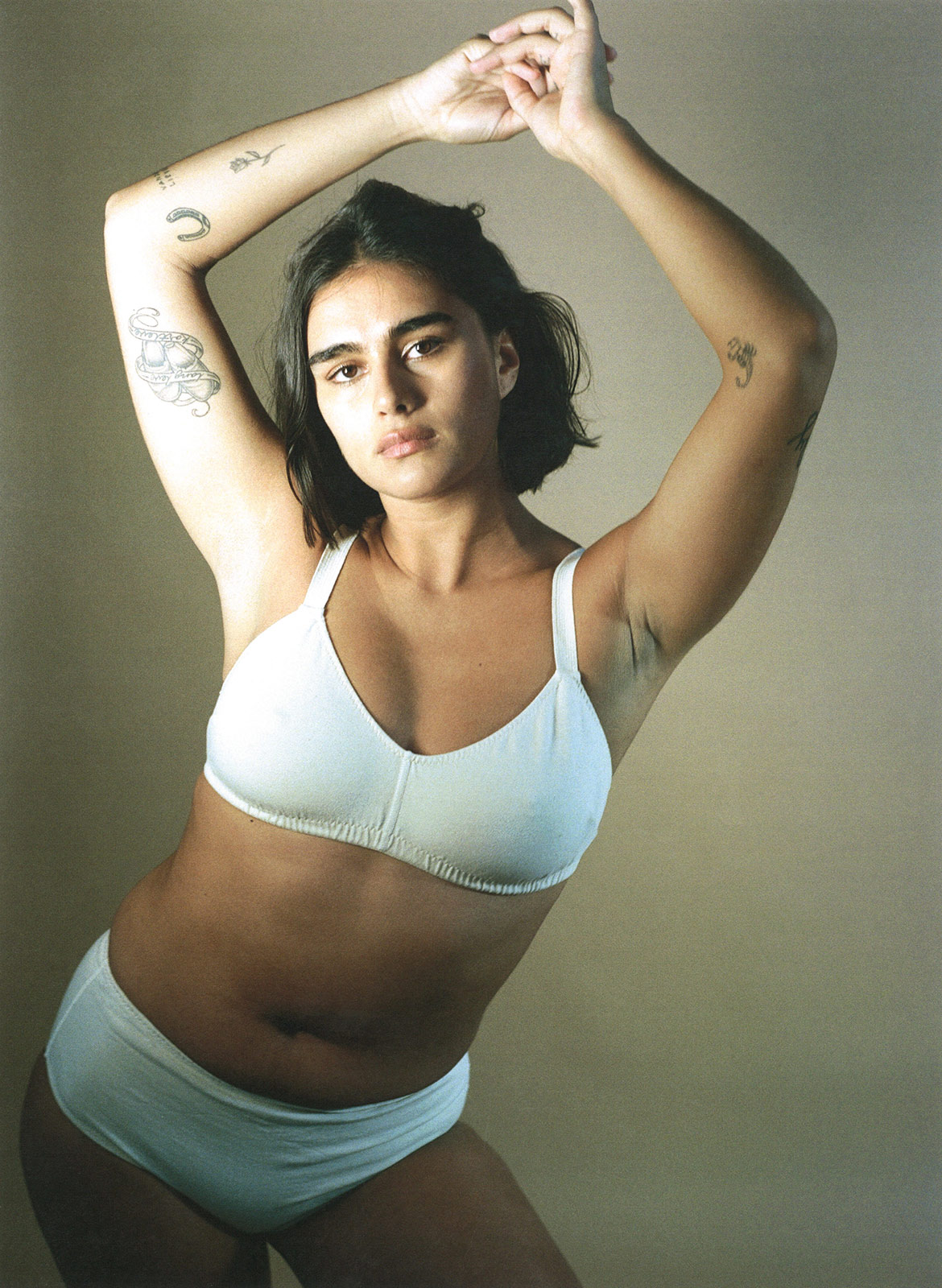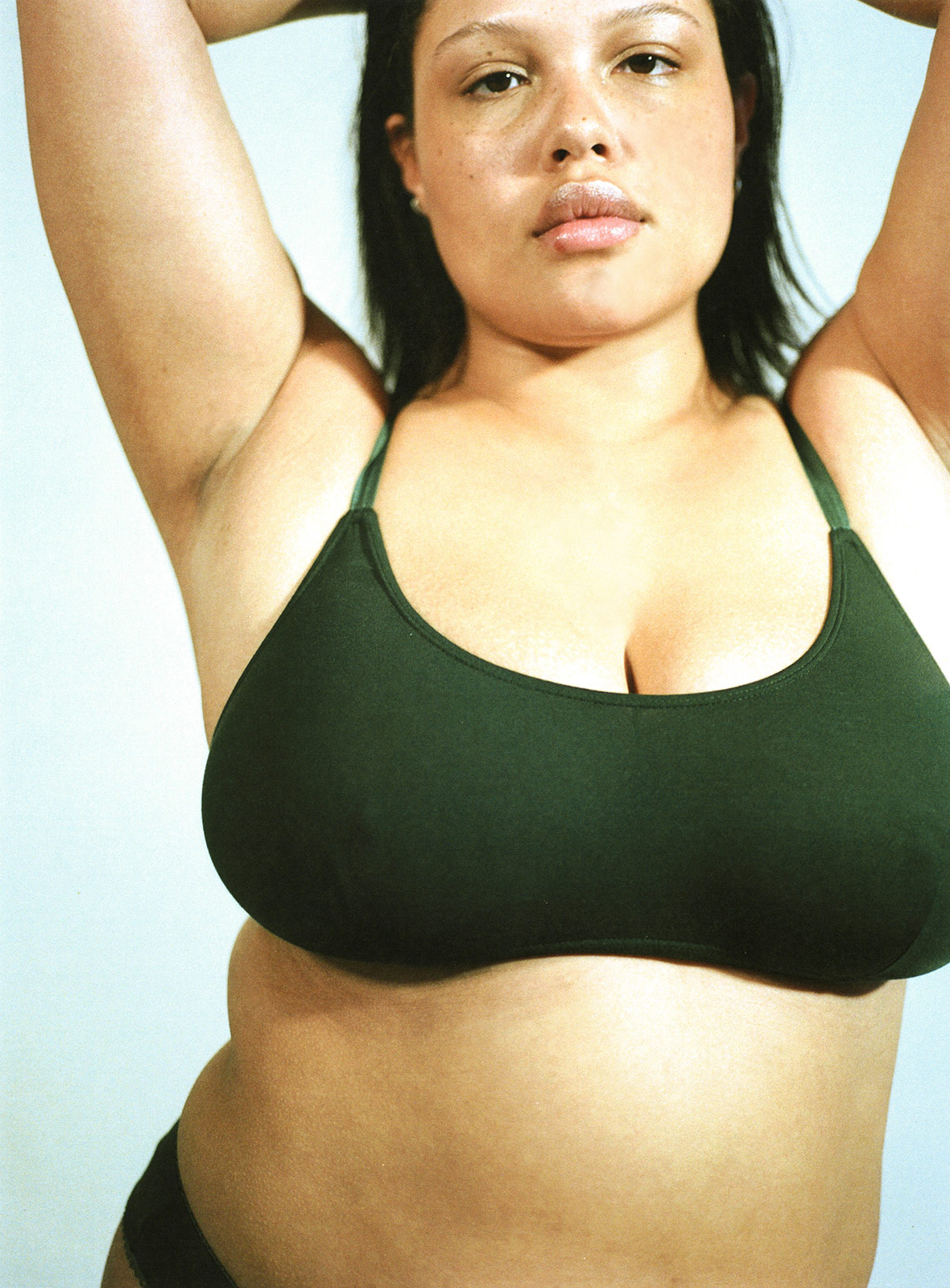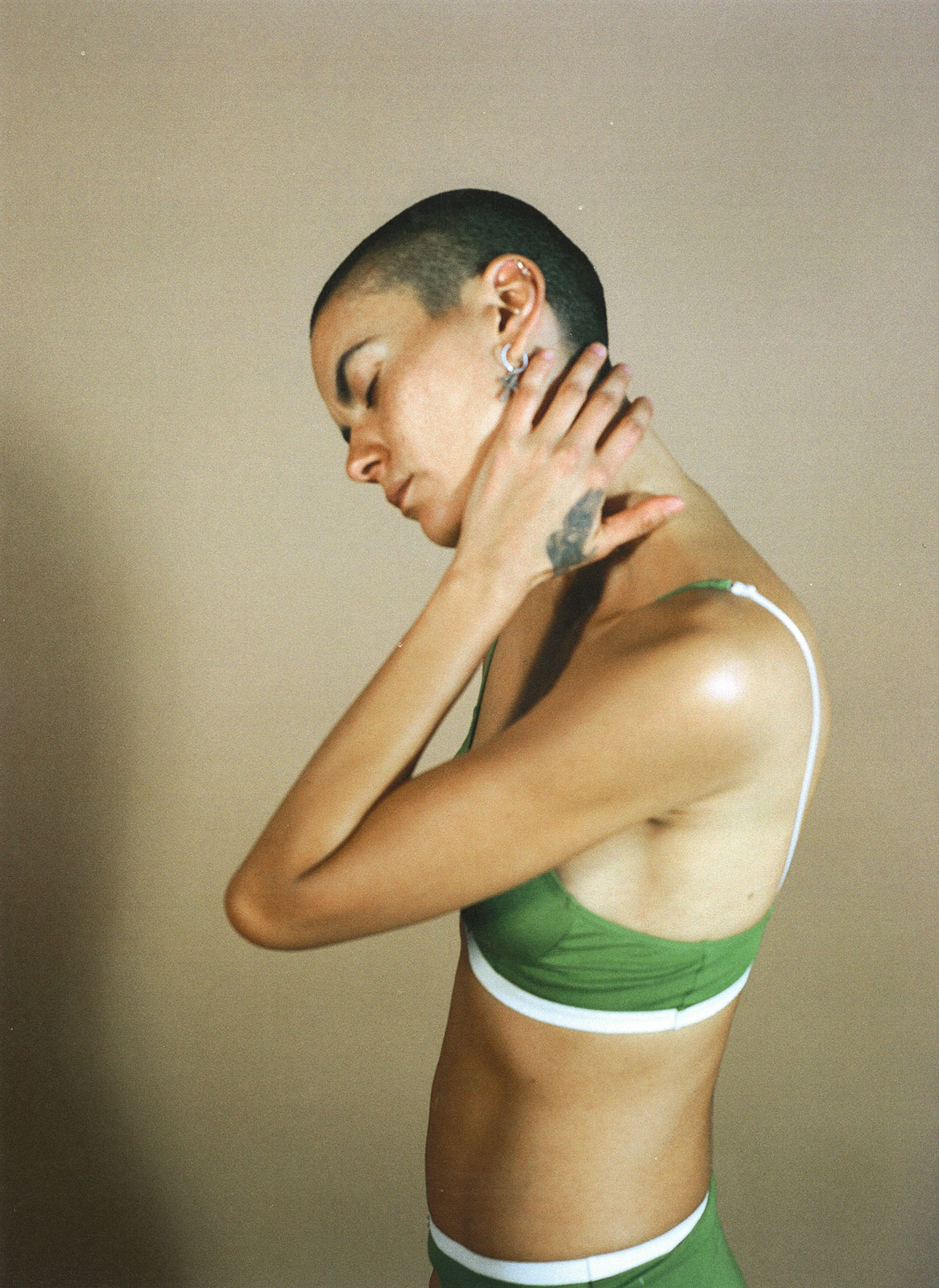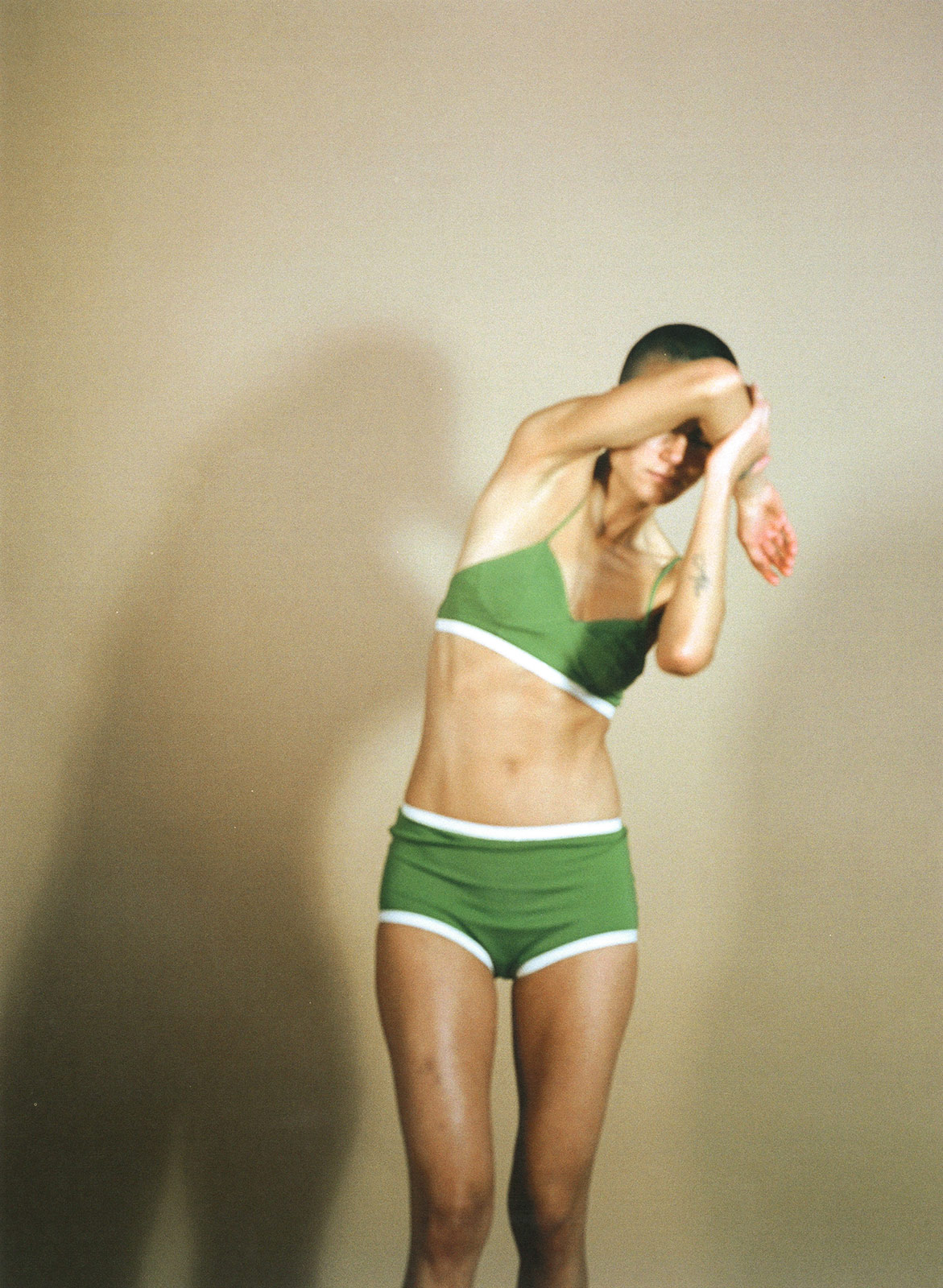Document spoke to eight founders about creating a vision of empowering sexuality that doesn’t include a wonderbra.
The lingerie market is currently undergoing a revolution of sorts. Old school players such as Victoria Secret are struggling financially, as equating ‘sexy’ to push-up bras has, to our generation, grown tired. Independent, niche brands have begun to fill the void for women who just want to feel like themselves and also know that the brand they are wearing holds itself to a high standard of sustainable practice. Document’s Sam Weir spoke with eight brands who believe in sustainability, inclusion, and body positivity. We showcase their products on eight beautiful women including Kimberly Drew a writer, curator and activist and Mary V Benoit, photographer and performance artist.
Baserange
Founded by Marie-Louise Mogensen. Based in Paris.
Sam Weir—What drew you to create a sustainable brand? Why was it worth it to you?
Marie-Louise Mogensen—By making underwear we could work with, [and creating] stories around people and around the system we live in. Being sustainable was important in that framework. I don’t think working sustainable comes with more challenges than not working sustainable. Most things comes with challenges, it’s simply a matter of choice. To us, the people wearing the clothes are more important than how the clothes themselves look. And we do put a lot of love and time into making [the lingerie] as well. But ultimately it’s the person—and this should be anyone that is drawn to wearing it—who should be seen and felt.
Araks
Founded by Araks Yeramyan. Based in New York.
Sam—For so long, ‘beauty’ had such a specific definition—your campaigns feature an inclusive cast of women. How important was it to show your consumer base beauty of all kinds?
Araks Yeramyan—Our lingerie pieces are designed to make all women feel beautiful, strong, and empowered. For a long time, the market offered mostly underwire bras, padded bras, and push up bras — all styles that change the shape of a woman’s breast and make them all look alike. For Araks it’s about the way women naturally are, and the perfectness in that. Women’s beauty is not a narrow definition. Our beauty lies in the vast differences that we all have to offer. Women are tired of being told that our bodies should look one certain way—different from what they naturally are. The idea of “what is sexy” is changing and broadening. It doesn’t have to be as overt or in your face, showing so much skin, or pushing your breasts up.
When I started my business, lingerie was a niche market with very few local factories that specialized in lingerie. Over the years we have supported these entrepreneurs to launch their own businesses by committing [to] our production, investing in equipment, and providing operational support and guidance. To date, Araks has supported the start of three women-owned production facilities in New York.
Lonely
Founded by Helene Morris and Steve Ferguson. Based in Auckland, New Zealand.
Sam—What drew you to create a sustainable brand? There are so many additional costs and challenges, which deters so many from it. Why was it worth it to you?
Helene Morris—No clothing brand in the world is 100% sustainable. That would mean leaving zero footprint and that is just not possible at this point in time. Even brands like Patagonia who have taken huge steps to address problems in production, supply chains, and overall business responsibility do not say they are a 100% sustainable brand. We do however take our responsibility for our impact on the world very seriously. We are a relatively small brand, but just like an individual we can lead by example. We often see larger brands looking to us for models and designs. We are constantly looking at what we can do next. We changed all our packaging to be recyclable in 2017 and are trying to eliminate our company of plastic. We help support our team’s mental health with a yearly allowance for support in this area. Open dialogue is so important to us as we have nothing to hide, but at the same time know we are not perfect.
Elliss
Founded by Elliss Solomon. Based in London.
Sam—How important is it to show your consumer base beauty of all kinds?
Elliss Solomon—I’ve never been super interested in high fashion imagery. I prefer documentary photography so I try and create that same life within my brand imagery. I also think photoshopped beauty can be so harmful to young people. I know it affected my perception of beauty as a young person. There is much more diversity now than there ever has been.
Sam—Can you discuss the reasoning behind some of the prints you use?
Elliss—I love to tell a story through my prints—I collage found imagery and vintage magazines. I love the idea of putting the face of a lesser known but amazing activist on an item of clothing that will be worn. The idea that their voice can be heard all of these years later is amazing to me.
Pansy
Founded by Laura Schoorl. Based in Oakland, California.
Sam—Something brands often forget is the packaging being sustainable as well. I read you use leftover scraps from your factory to create the jersey bags?
Laura Schoorl—Something we are so excited about is having little to zero waste since it’s such a huge issue in apparel manufacturing. We only use three different types of USA-grown organic cotton jersey and garment dye everything in small batches. When we started making larger items, we would have big gaps in the fabric that weren’t being used and that’s when I thought we should try making them into the bags we now use to package our underwear. I am also currently looking into a way to recycle and shred the remainder of our tiny scraps into filling for a side project of pillow making. I make sure every new employee feels that same deep connection to the environment and commitment to doing the least amount of harm possible to our earth.
Jonesy
Founded by Rachel Jones. Based in Brooklyn, New York.
Sam—Consumers are now deciding what sexy means for themselves and have since pushed away from the established ‘norm’. Have you noticed this shift from a business perspective?
Rachel Jones—Consumers are fed up with the “sexy” status quo and are way more vocal in their approval and disapproval of content getting produced. It’s a welcomed change. We have customers that reach out to say “good job” and fans of the brand that reach out to let us know when we’ve missed the mark and how we can do better. Brands always talk a lot about having a two-way conversation with their customers. But I think we’re fully living in that reality now, adapting and evolving, almost in real-time, to shifting “norms,” which requires a lot of intentionality and figuring out what you stand for. Since we have no PR agency and are a direct-to-consumer brand, social media has been the primary vehicle for us to tell the story of Jonesy and build our customer base. Now; I regard social as more of a “listening tool” to hear from customers and fans. I want our followers and customers to be driving our agenda and business strategy forward.
Land of Women
Founded by Mckenzie Raley. Based in New York.
Sam—How important is it to show your consumer base beauty of all kinds?
Mckenzie Raley—I’m a woman, I’m six feet tall and a size 12, so naturally the women I see who are around that size are the women I relate to most. I wanted to create this literal Land of Women that feels safe, comfortable, and considered. We’re not revolutionizing bras per se but we are offering our customers something they haven’t seen before in the lingerie space—self-acceptance. When other companies retouch their photos, especially of women, it’s a judgement against them. We don’t want our customers to feel as though we’re hiding anything from them.
Botanica Workshop
Founded by Misa Miyagawa. Based in Los Angeles.
Sam—How do we as a society move more into a ‘slow fashion’ cycle?
Misa Miyagawa—Being aware of how a product is sourced and produced is huge. Customers know that transparency does not automatically equal sustainability and should be able to ask questions about the supply chain. In general, consuming less and creating less waste is a great start. Choosing to invest in long-lasting products, especially those that are made with natural, organic, or recycled fibers, is also a great way to begin shifting your wardrobe. A big part of how we define sustainability is tied to labor—who is doing the work and where—which our customer may not know about or see. Community building is so important to sustainable practices. Most of our contractors are women, who believe in our mission and who are paid fair wages.
Models Kimberly Drew, Lee Armoogam, Mary V Benoit, Jacalyn O’Shaughnessy, Jill Kortleve and Yasmin Geurts at Muse Models, Alva Claire, Giulia, Afra Cuellar at Silent Models. Hair by Andrita Renee. Make Up by Ai Yokomizo.



